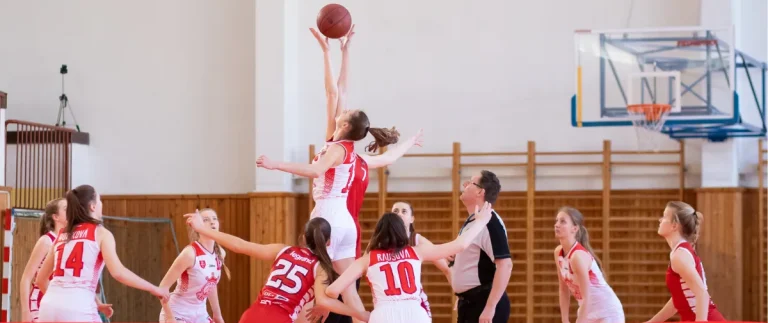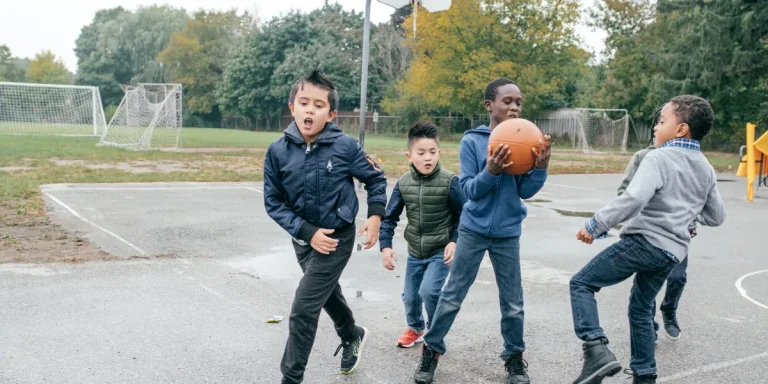NBA Basketball Players Retirement: When do they Retire
What factors influence basketball players retirement from the sport? Do they continue to receive compensation? What factors influence their decision to retire? These questions and more will be illuminated as we embark on a delightful journey into the world of retired NBA players.
In the realm of professional basketball, retirement usually awaits players in their later years. As they reach a certain stage in their careers, they gracefully step away from the court to embrace new chapters in life. This transition allows them to explore exciting opportunities and contribute their wisdom and experience in different avenues.
What Age do Basketball Players Retire?
The retirement age for basketball players typically varies widely based on several factors, including their health, performance, and career trajectory. While many professional basketball players retire in their late 30s to early 40s, there are exceptions like LeBron James, who at 38 years old, continues to excel and break records. It’s worth noting that some players may retire earlier due to injuries or a decline in performance, while others may choose to prolong their careers if they remain healthy and productive.
Read more: Why Do NBA Basketball Players Wear Masks?
Why do NBA Basketball players retire?
Players retire from professional basketball for various reasons, and these can include:
Physical Decline
As players age, their bodies may no longer keep up with the demanding physical requirements of the sport. Decreased athleticism and an increased risk of injuries can lead them to consider retirement.
Health Concerns
Serious injuries or recurring health issues can hinder a player’s ability to perform at their best. In some cases, these challenges may become insurmountable, prompting them to retire.
Underperforming
If a player’s performance declines significantly, they may face reduced playing time or potential exclusion from teams. This realization of underperformance can be a deciding factor in retirement.
Personal Reasons
Players may retire due to personal reasons such as a desire to spend more time with family, pursue education, or explore other career opportunities. Additionally, legal issues or off-court challenges could also influence their decision to retire.
Career Fulfillment
Some players may feel satisfied with their accomplishments and choose to retire on a high note. They may want to leave the game while still at their peak or after achieving specific career milestones.
Transition to New Opportunities
Retirement can open doors to new opportunities, such as coaching, broadcasting, or working in sports management. Some players may be ready to explore different career paths after their playing days.
Each player’s situation is unique, and retirement can be a complex and emotional process. However, despite bidding farewell to the professional basketball court, many players continue to contribute positively to the sport and society in various capacities beyond their playing days.
Read more: Tips To Improve Basketball Player Skills
Average Retirement Age NBA Players
The average age at which NBA players retire is typically around 33 to 35 years old. However, this can vary based on individual circumstances and career longevity. Some players may retire earlier due to injuries or personal reasons, while others might continue playing into their late 30s or even early 40s if they remain in good physical condition and continue to be valuable assets to their teams. Overall, the average retirement age in the NBA falls within the mentioned range, but there are always exceptions depending on the player’s unique situation and career trajectory.

What do Players normally do after Retirement?
After retirement from professional basketball, players often pursue various paths and engage in different activities based on their interests, skills, and personal aspirations. Some common post-retirement endeavors include:
Coaching: Many players transition to coaching roles, sharing their knowledge and experience to mentor and develop the next generation of athletes.
Broadcasting and Commentating: Some players become sports analysts or commentators, providing insights and analysis during basketball games and related events.
Business Ventures: Several players venture into entrepreneurship, starting their businesses or investing in various industries.
Community Work and Philanthropy: Retired players often engage in charitable work, supporting causes they are passionate about and giving back to their communities.
Media and Entertainment: Some players explore opportunities in the entertainment industry, such as acting, hosting, or producing.
Sports Management and Front Office Roles: Players may work in sports management, taking on roles in team front offices or league administration.
Personal Development and Education: Pursuing further education or personal development is common among retired players, as they seek to broaden their knowledge and skills.
Basketball Training and Camps: Retired players often run basketball training programs and camps to pass on their expertise to aspiring players.
Fitness and Health Industry: Some players leverage their knowledge of physical fitness and health to work in the fitness industry or become personal trainers.
The diversity of options available to retired players allows them to transition to new and fulfilling chapters in their lives beyond their basketball careers. Each player’s post-retirement journey is unique and reflects their passions and aspirations.
Do NBA Players get Paid after Retirement?
Yes, players can still receive payment after retirement, depending on their specific contractual arrangements and the league’s policies. In the NBA, players often contribute a portion of their earnings to various retirement plans during their active playing careers. These retirement plans, along with other financial investments, provide a source of income for players after they retire from professional basketball.
Additionally, some players may have endorsement deals, investments, or business ventures that continue to generate income after retirement. However, the amount of payment and financial security post-retirement can vary significantly from player to player, depending on their career earnings, financial planning, and off-court endeavors.
Read more: Why Is Speed Important In Basketball?
Why NBA Players Retire Early?
Players often retire early from professional basketball due to various reasons, including injuries, health concerns, declining performance, personal priorities, financial security, burnout, new opportunities, and team-related factors. Each player’s decision is unique as they navigate these complex factors and make choices that align with their circumstances and future aspirations. There isn’t a specific NBA average retirement age or timeline dictating: when do NBA players retire. Instead, retirement timing in the NBA is influenced by a combination of these factors, with each player determining the most suitable moment to conclude their basketball career.
FAQs
Who is the oldest active NBA player?
Haslem was the oldest active NBA player. However, please note that player rosters and ages can change, so it’s best to check for the most current information.
Can you be 40 in the NBA?
Yes, players can be 40 years old or older in the NBA. While it’s relatively uncommon for players to continue playing at such an advanced age, there have been instances of players competing in the NBA beyond the age of 40.
How much is the NBA pension?
NBA veterans with 10+ years of experience can earn up to $215,000 annually. Upon retirement at 45 or 50, they receive $800 per month for each year played.
How long do NBA players play?
NBA players’ careers typically last around 4 to 5 years on average but can vary significantly, ranging from shorter to longer durations depending on individual circumstances and factors.
Conclusion
In the NBA, players typically retire based on a variety of factors, including talent, injuries, team fit, and personal choices. The average length of an NBA player’s career is about 4 to 5 years, though this can vary significantly. While some players enjoy extended careers, others may have shorter ones. Thus, there isn’t a specific age or timeline dictating when do you have to retire from the NBA. Instead, each player’s journey in professional basketball is unique, and shaped by individual circumstances and opportunities.

Passionate basketball player striving for excellence on and off the court. Dedicated to the game since youth, I have honed skills through years of practice. Explore my journey, gear reviews, and dunking tips. Let’s elevate our game together!







lets read